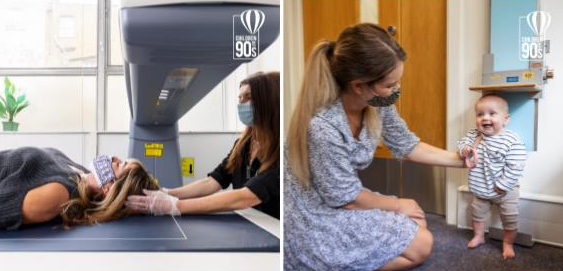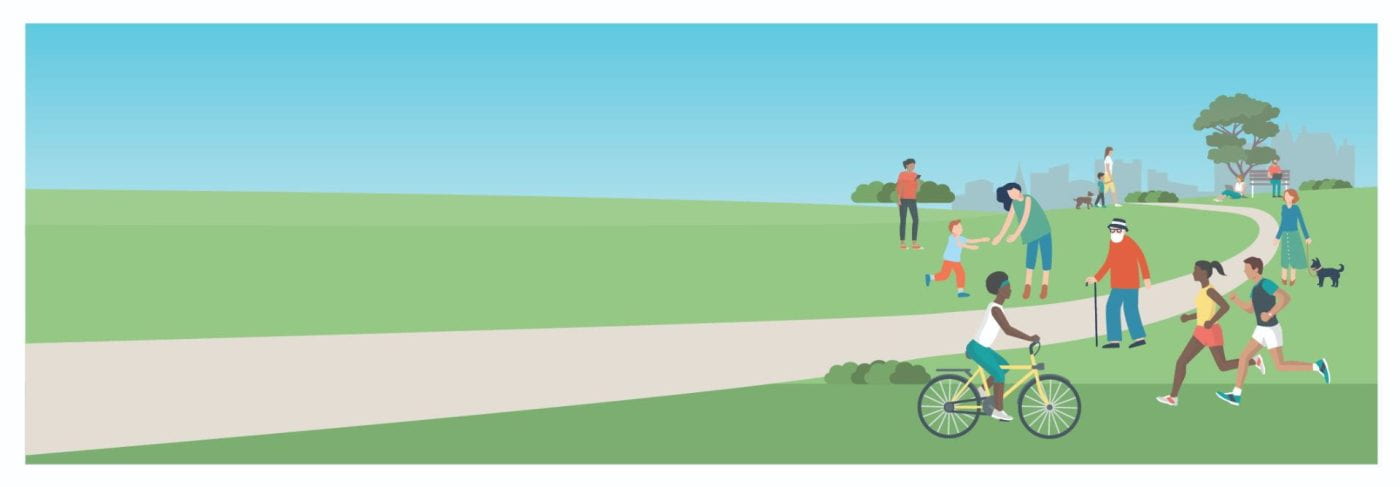Partnerships and Knowledge Exchange
COVID-19 Mapping and Mitigation in Schools (CoMMinS) Study
This large scale Urgent Public Health study funded by the MRC and NIHR (£2.75 million) began in September 2020 and has worked with 17 schools (primary, secondary and schools serving children with special educational needs and disabilities) across the City of Bristol. With support from the City Council Health Protection Team and Director of Education and colleagues at Public Health England we continue to help schools to manage the challenges faced by the pandemic. The study seeks to gain insights into the natural history of COVID-19 in children and those working in the education sector as well as understand more about the long-term consequences of infection. Visit the CoMMinS website for more details of the study.
Co-ordinating rapid evidence request to support health system response to COVID-19
At the start of the pandemic, NHS colleagues approached NIHR Applied Research Collaboration (ARC) West for help as there was a vital need for researchers to do rapid evidence reviews and analyse routine data to help inform decision-making and support their strategic response to COVID-19. A pool of over 70 volunteer researchers was quickly assembled from across the university. ARC West coordinated requests for rapid evidence support from all CCGs and local authorities across ARC West’s geography, with researchers answering key questions within 48-60 hours. In total, 27 rapid evidence reports were published. For example, a rapid review was conducted of evidence on the disproportionate impact of Covid-19 on ethnic minority communities and the possible mediators and a review into the impact of COVID-19 on mental health outcomes, which informed the development of strategies for vulnerable groups by the Department of Health and Social Care.
Bristol Health Partners
Bristol Health Partners is a strategic collaboration between the city region’s universities, major health and care providers and commissioners, covering the Bristol, North Somerset and South Gloucestershire area. On 1 April 2020, Bristol Health Partners was awarded the prestigious designation of Academic Health Science Centre (AHSC) by NHS England/ Improvement and the National Institute for Health Research. The AHSC activities are mostly delivered by our 20+ Health Integration Teams (HITs), which comprise health professionals, researchers, commissioners, voluntary organisations and service users and are focused on prevention and delivery of evidence-informed health and care. Visit Bristol Health Partners.
Health Integration Teams carry out a range of functions and their common purpose is to:
- Convene groups of professionals, service users and academics with an interest in a specific health area. This helps them identify the local issues that need joint action, reduce duplication and spot opportunities to collaborate.
- Develop new ways of solving health issues. This often includes through overseeing research projects, delivering innovative training and making proposals for evidence-based service redesign.
Examples of current HIT projects include:
- Perinatal Mental Health: Reviewing literature on barriers and enablers for disadvantaged groups in accessing perinatal mental health support. The HIT will use these findings to work with relevant communities to co-develop new approaches that will help increase access to support and improve outcomes.
- Active Older People: Running and evaluating an annual walking festival, to encourage increased physical activity for all ages, all backgrounds and all levels of fitness.
- Parkinson’s: Overseeing research project to develop more accurate measurement of Parkinson’s symptoms using home sensors to monitor activities of daily living.
Centre for Public Health, young people’s mental health during the Covid-19 pandemic
As part of the NIHR School for Public Health Research (SPHR) programme in Public Mental Health – researchers at the University of Bristol conducted a survey with secondary school students in 17 secondary schools in the South West. It was published as an SPHR report and received a large amount of media attention by press and broadcast media. Details of the work have also been included in a Department of Education research report. Further SPHR ResNet funding was awarded (to Emily Widnall) to build on this work, investigating young people’s mental health in relation to the pandemic and school closures, several months on.
South West School Health Research Network
Rona Campbell and Russ Jago are leading the development of a School Health Research Network in the South West (SW-SHRN) to facilitate a long-term partnership between research and key stakeholders in public health delivery for school-aged children to maximise the opportunities for improving the health, wellbeing and educational outcomes of children and young people. The network includes schools, local authorities, a young people’s advisory group, parents, public members, and representatives from the Department for Education, PHE and local public health and education teams.
Good Grief Festival
Dr Lucy Selman (PI) and the University’s Palliative and End of Life Care Research Group, in partnership with University of Bristol colleagues in English Literature and Film and external collaborators, launched the Good Grief Festival in October 2020. The October festival was funded by a public engagement grant from the Wellcome Trust with additional support from the University of Bristol’s Temple Quarter Fund and Elizabeth Blackwell Institute. It was attended online by 8500+ people and achieved widespread media coverage, with a reach of 1.2 billion through >70 news articles across UK and international press and broadcast media (e.g. this Guardian article).
After the success of the first festival, the team was approached to deliver its online events for the National Day of Reflection on 23 March 2021, and subsequently delivered a second festival 28-29 March, with the support of Marie Curie, the National Lottery Foundation and the University’s Brigstow Institute. Good Grief events have now been accessed by 15000+ people, and the team has established the Grief Channel as a portal for past and future events.
Good Grief is highly collaborative and inclusive: to date, the team has collaborated with 36 national, regional and local partners to develop and deliver the festival, including Cruse Bereavement Care, the Good Grief Trust, Bristol Black Carers, St Peter’s Hospice, University of Bath, Child Bereavement UK, Arnos Vale Cemetery, Creative Youth Network and many others.
ALSPAC, Children of the 90s study
 Children of the 90s is the most detailed study of its kind in the world. The study’s rich data about environmental and genetic factors that affect health and development continue to inform policy, aiming to provide a better life for future generations.
Children of the 90s is the most detailed study of its kind in the world. The study’s rich data about environmental and genetic factors that affect health and development continue to inform policy, aiming to provide a better life for future generations.
Civic engagement lies at the heart of Bristol’s Children of the 90s study. In recruiting 80% of all the pregnant women in Bristol, Weston super Mare and South Gloucestershire in 1991-2, the study began a unique partnership with the city. Today, thousands of Bristol families remain firmly engaged with health research throughout their life, with 75% of participants still living in the city. From the original 14,500 babies born in 1991-2, there are now over 20,000 participants across 3 generations of Bristol families taking part. Their participation includes filling in questionnaires, attending clinics, doing home-based tests and enabling access to health and education record data. Our current @30 clinic is inviting over 20,000 participants to attend a 2-hour clinic. Here the participants’ health will be assessed via routine measures and scans. New biological samples will be collected and added to the 1.2 million biological samples and health and wellbeing data gathered over the past 30 years.
Our COVID-19 research is an exemplar of our civic engagement. Bristol families responded in very large numbers to the call for real-time data – completing online questionnaires to track the prevalence, asymptomatic spread and immune response to the virus. Via home-based antibody tests and immunity clinics, the residents of Bristol are helping us better understand COVID-19 and to define Long COVID. Their routine engagement in science continues to inform policy and assist clinical treatment during the pandemic.
Public engagement has been carried out via events such as the Harbourside festival and a partnership with the Bristol science centre, We The Curious. Children of the 90s continues to contribute to live science via researcher residencies, talks and exhibits. Visitors are invited to learn more about longitudinal studies and innovations in science using our data.

